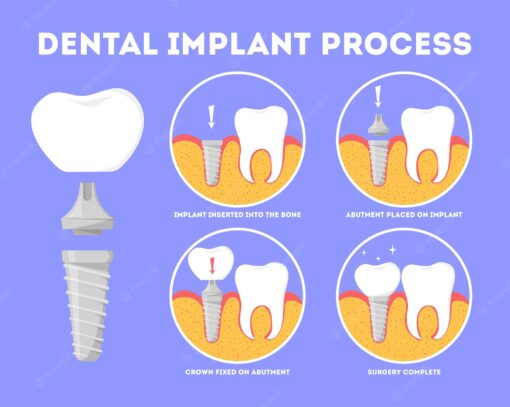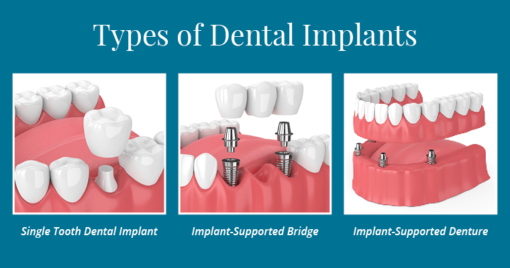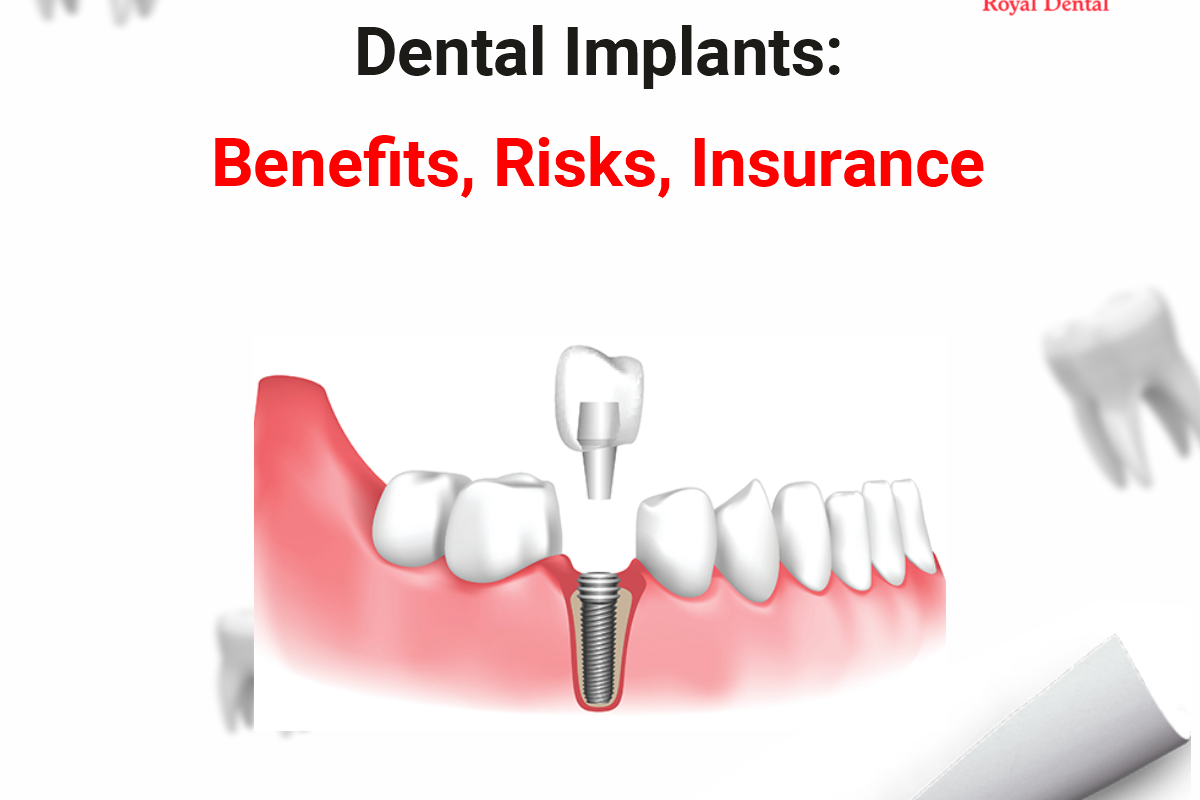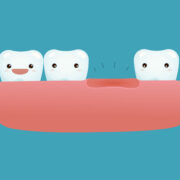Dental implants are a popular choice for those looking to replace missing natural or damaged teeth with a permanent tooth solution. But the question remains – do they feel like real teeth? The answer is yes! It is designed to feel and function just like real teeth. This is because they are rooted in the jawbone and fuse with it, the foundation for the artificial tooth. The process of implantation is precise and requires a skilled professional, to ensure that the implant looks and functions just like a real tooth. In addition, the material used in the implant is biocompatible, meaning it is accepted by the body and not rejected. This allows the patient to enjoy the same as a natural tooth when eating and speaking.
What are Dental Implants?
Dental implants are man-made substitutes for lost teeth. They are similar in function to natural teeth, enabling people to eat and speak normally. Implants are placed into the jawbone using a surgical procedure. They are made from titanium and are attached to a titanium abutment and a stainless steel crown.

The two components are cemented together using a special biocompatible material. They are below the gum line and are completely natural-feeling. However, they are not a long-term option for replacing all missing teeth. They are designed to last a maximum of 10 to 15 years. At the end of this time, they may begin to lose their shape and function.
Do Dental Implants feel like real teeth?
Dental implants are designed to closely resemble natural teeth in form and function. While there may be some differences in how they feel compared to natural teeth, many people find that dental implants feel very similar to their natural teeth.
Here are some factors that can influence how tooth implants feel:
Stability: One of the key advantages of dental implants is their stability. They are anchored securely into the jawbone, just like natural teeth, which can provide a strong and stable foundation for chewing and speaking.
Comfort: Dental implants are custom-made to fit the unique contours of your mouth, which can help ensure a comfortable fit. With proper placement and care, dental implants should not cause any discomfort or irritation.
Sensation: While dental implants cannot replicate the exact sensation of natural teeth, they can provide a similar feeling of pressure and support when biting and chewing. Over time, many people find that their dental implants begin to feel more like natural teeth.
Appearance: Dental implants are designed to closely resemble natural teeth in color, shape, and texture. This can help them blend in seamlessly with your natural teeth and give you a natural-looking smile.
Dental Implantation process
Initial Consultation: The first step is to schedule an initial consultation with a dental professional to discuss your dental health history and determine whether dental implants are a good option for you. This may involve a comprehensive dental exam, x-rays, and other diagnostic tests to evaluate your oral health.
Treatment Planning: Once it has been determined that tooth implants are a suitable option, a treatment plan will be developed. This plan will outline the specific steps involved in the implantation process and may include multiple appointments.

Implant and Crown Placement: The next step is to place the implant in the jawbone. This typically involves a minor surgical procedure in which a small incision is made in the gum tissue, and the implant is inserted into the jawbone. Finally the placement of a single dental crown or a dental bridge, depending on the number of missing teeth.
Advantages of Dental Implants
Dental implants offer several advantages to people who are considering them as a replacement for teeth that have been lost. These include a long-term solution for oral health, the ability to eat and drink whatever you want, the option of eating out, and the ability to smile confidently in social or work settings. They also provide a similar sensation when eating, speaking, and brushing teeth, as well as a stable, natural-feeling foundation for dentures. Implants are often an easy and safe option for people who want permanent teeth but are unable to chew solid foods or are experiencing dental decay.
Types of Dental Implants
There are two types of dental implants available: traditional and immediate-set. Traditional implants are surgically placed into the jawbone, where they fuse with the bone and become a permanent replacement for teeth. These are often the most common and are the only type covered by Medicare.

Immediate-set implants require no surgical implantation. Instead, they are a prosthetic that is placed over the jawbone. The prosthetic is then connected to nerves and blood vessels that help it function like a real tooth. This type of implant offers a convenient solution for people who want to start receiving treatment right away.
Cost of Dental Implants
The cost varies depending on a few factors, such as the patient’s dental coverage and where the procedure is performed. As a general rule of thumb, the cost ranges from $5,000 to $10,000. This is inclusive of the surgical costs, implantation costs, the cost of the implant crown, the cost the implant rehabilitation, the cost of the rehabilitation period, the cost of implant follow-up visits, and the cost of implant removal. There are many factors that contribute to the final cost of tooth implants, including the implant material, the number of implants used, the complexity of the procedure, and the doctor’s experience.
The Recovery Process
Implantation is a surgical procedure, so there are certain risks associated with it. The implant recovery period starts on the day of the surgery. The patient needs to rest, eat only bland foods, and avoid drinking anything but water for the first 24 hours. If a patient experiences any pain, swelling, bleeding, or wounds, they must take medicines as prescribed or speak to their dentist.
The implantation site may feel sore or tender for the first few days, and the mouth may be sore and swollen for a few weeks. Patients are advised to avoid biting, chewing, and strenuous chewing during this time. During the implantation recovery period, patients may use a prescribed mouth rinse to help remove bacteria and promote healing.
How to care for your Dental Implants?
✦ Brush teeth twice a day, morning and evening.
Floss daily, preferably after brushing.
✦ Avoid eating soft foods, chewing gum, and smoking.
Avoid activities that bruise or hit the mouth, like contact sports or boxing.
✦ Visit the dentist for routine checkups and cleanings.
Wear a retainer if you wear teeth outside the mouth.
Conclusion to Dental Implants
Tooth implants are a permanent solution for tooth loss, and they are completely natural-feeling. They are durable, long-lasting, and offer complete esthetics, with no visible implants and no metal in the mouth. Implants are bio-integrated and are minimally invasive. The recovery period is short and causes no discomfort, and they need to be cared for just as you would your natural teeth. There are many positive aspects to dental implants, which make them a worthwhile investment.






